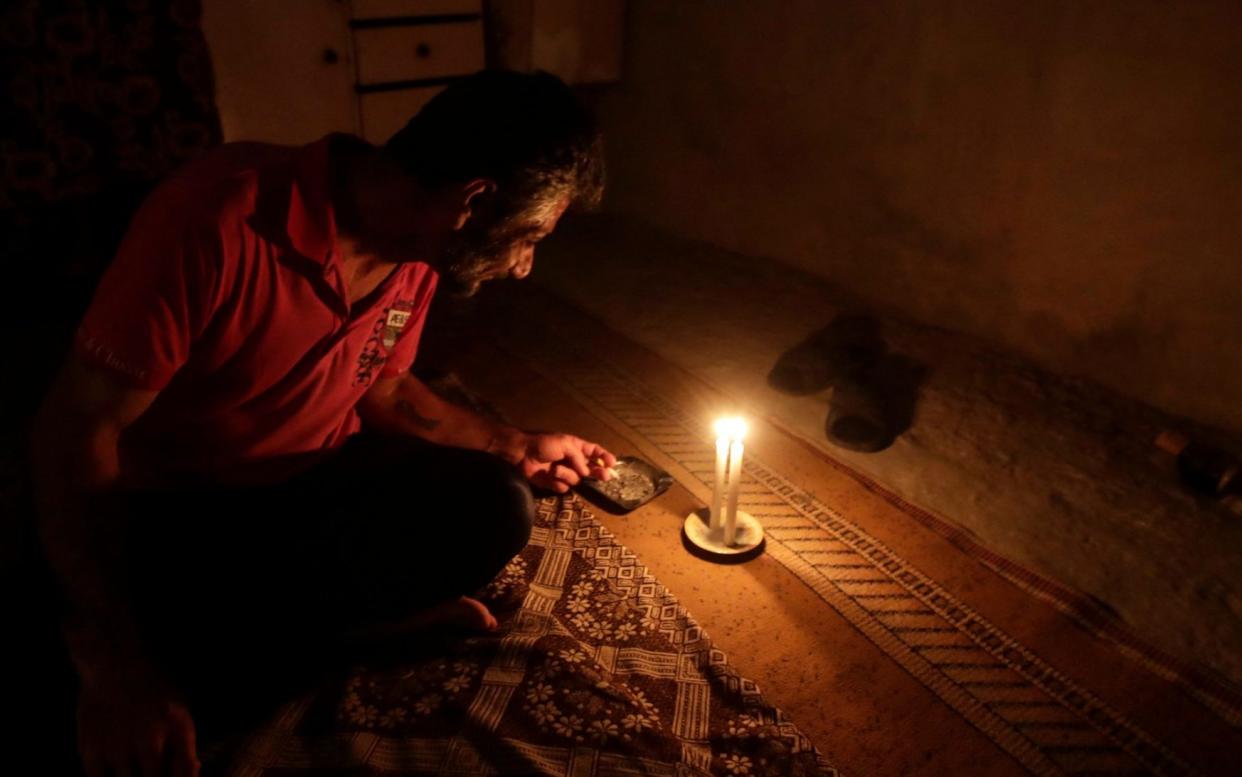Parts of Middle East at breaking point with power cuts and water supplies running out

Record temperatures have plunged parts of the Middle East into an energy crisis marked by 23-hour power cuts, failing healthcare systems and fuel-related protests.
Years of warnings being ignored, resource mismanagement, corruption and climate change - combined with destabilising economic crises - have led to collapsing power grids and fuel shortages that are leaving businesses, hospitals and citizens in despair.
Lebanon has been dealing with a minimum of three-hour power cuts a day since the end of the civil war in 1990. But now, in the midst of economic collapse and unable to afford fuel to power the electricity network, the power cuts from the national grid can last up to 23 hours a day.
Food that people can already barely afford is spoiling in fridges, the lights have gone off in the airport and hospitals are rationing air-conditioning.
The whole country is now effectively run by back-up generators, whose owners are struggling to find black market diesel. Increased rationing of generator use has left residents living outside of affluent neighbourhoods with little more than a few hours of power a day.
Temperatures have been soaring
Lengthy blackouts have also become common across much of Iraq, where temperatures have already surpassed 50C this year, with parts of Syria also facing increasing cuts due to fuel shortages.
Between sanctions, attacks on power grids, chronic mismanagement and a lack of investment in renewable energy, first and foremost, "it’s a lack of energy planning" across the region, said Marc Ayoub, an energy and security expert at the American University of Beirut.
"They didn’t believe the impact of climate change would be this fast-tracked. If you look around the region, each [affected country] has its own story of demand mismanagement and resource mismanagement."
Iraq and Lebanon appeared to try to exchange their crises on Saturday, signing a deal that allowed Iraq to sell Lebanon one million tonnes of fuel oil for its power plants in return for healthcare services. The Iraqi oil is incompatible with Lebanese power stations, so it will be used to purchase usable fuel, Lebanon's energy minister said.
Both countries are struggling to provide enough fuel to power their healthcare facilities.
According to Mr Ayoub, sanctions on Iran have heavily impacted both Iran and Iraq’s electricity supply, with the former not having access to the fresh funds needed to maintain existing power plants and the latter having relied on Iranian gas for years.
"There is an 11,000 megawatt shortage in Iran this summer," Mr Ayoub said.
"While they have invested in solar and wind heavily, they can’t create a new source overnight," he added.
Water supply may run out
Over the weekend Unicef warned that with the failure of the Lebanese power grid, the country’s water supply could collapse within a month, highlighting how tightly entwined the water and fuel sectors are in energy demand without investment in renewable energy for water pumping.
"Unicef estimates that most water pumping will gradually cease across the country in the next four to six weeks", said Yukie Mokuo, a Unicef representative in Lebanon, adding that four million people, including one million refugees, are at immediate risk of losing access to safe water.

With climbing temperatures and years of over-extraction, severe water shortages have led to droughts in eastern Syria and Iran, with experts now claiming the latter is “water bankrupt”. Iraq’s marshes in the south of the country are also starting to dry out.
Protests have spread across Iran over the last week with demonstrators taking to the streets to cry "I’m thirsty" over severe droughts that have caused electricity blackouts and devastated agriculture and farming.

